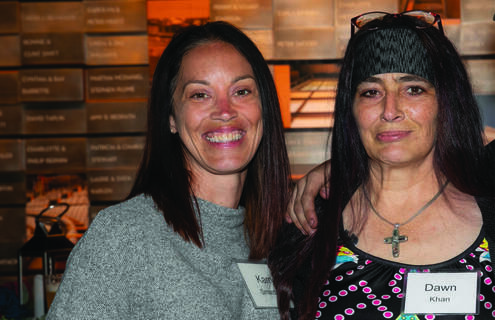
What if substance use disorder was treated like any other healthcare issue, like diabetes or arthritis?
It is at Alice Peck Day Memorial Hospital. APD’s Multi-Specialty Clinic offers imbedded medication-assisted treatment (MAT) within Primary Care.
MAT is the use of medications, in combination with counseling and behavioral therapies, to provide a whole-patient approach to the treatment of substance use disorders (SUD). Each program is clinically driven — typically by a team consisting of the primary care doctor, a recovery coach and/or a social worker, and the patient — and tailored to meet the patient’s needs.
The MAT program at APD expanded after a patient returned from a residential program with a Sublocade prescription, a weekly injection used to treat opioid addiction. After seeing her success with inpatient treatment, her primary care team researched how to provide Sublocade at Alice Peck Day as part of her ongoing wellness program.
“Dr. Sheila Bachelder and Karry Smardon were wonderful. They asked lots of questions and wanted to not just support me, but support others struggling with SUD,” said APD patient Dawn Khan.
Patients treated for substance use disorder may visit primary care weekly, monthly, or quarterly.
“The schedule is determined based on what everyone — the provider, the patient, and the recovery coach — is comfortable with,” said Karry Smardon, social worker and recovery coach in APD’s Primary Care. “We ask screening questions at each visit and connect patients to community services. It adds another layer to care so there is less chance of recurrence.”
APD’s Primary Care team has always advocated for their patients, and part of that care includes providing a non-judgmental, stigma-free environment.
“A patient receiving MAT within our primary care center is treated no differently than the patient who is having challenges with their diabetes or hypertension,” said Shelley Freidman, clinical manager of Primary Care. “This is why we do the work we do and this is what makes APD special.”
Khan — a case manager at Headrest, a 90-day residential program in Lebanon, New Hampshire — is now helping others struggling with addiction.
“As a case manager, I guide clients in their recovery; provide resources for them to obtain medical, mental health, eye and dental care, housing, employment, education; and help with anything else they may need while there: licenses, copies of birth certificates, IDs, Social Security cards, insurance, and school transcripts,” she said. “I facilitate recovery groups during my shift and drive clients to recovery meetings throughout the community.”
And she recommends APD’s primary care.
“I recommend APD's Primary Care to everyone struggling with or in treatment for SUD, as it is the only place in the entire Upper Valley where you can be treated with dignity and respect,” she said. “At APD, SUD is treated like any other disease, as opposed to a moral defect. This is what all medical professionals should be doing, not just APD.”